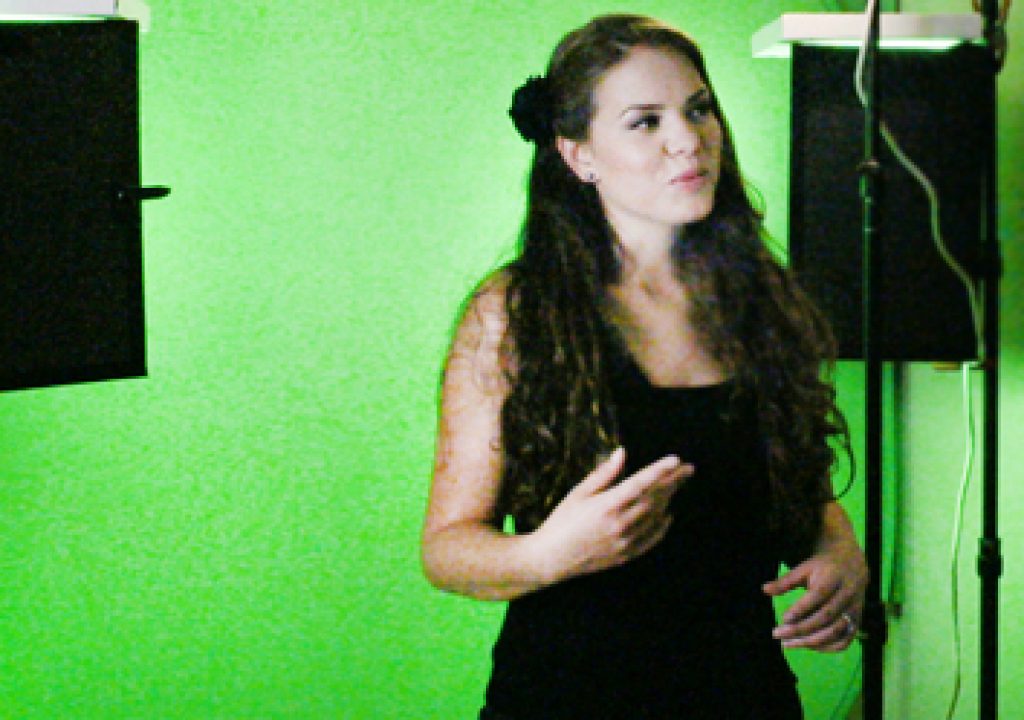![]()
Before you go out and spend hundreds of dollars on a cheap light kit online or through a catalog, consider the option of making your own portable, durable and ultimately flexible low-voltage lighting kits. You’ll not only have more control over how much light you want to put on your background and your subject, but also how much you want to spend!
Flexibility, Portability & Savings!
These easy-to-make lights utilize standard craft materials you can get from art supply and hardware stores. Foamcore, ducts tape, hot glue, velcro, bulb sockets, lamp cord, plastic diffuser and some mounting hardware and you’ll be up and running with a durable, portable lighting system that will light your portable green screen and your subject that you will be proud of and save you money!
![]()
Some basic materials can be transformed into portable lights that will run cool and save you money!
I was first introduced to the Nano-Softbox lights by my friend, colleague and a long-time video producer Victor Milt, who showed me how to build these great lights. I’ve further enhanced some of the steps and created some smaller, cheaper lights I use in pairs to light my portable green screens and other studio setups and table tops – which I call the Nano-mini.
![]()
The Nano-Softbox can be built rigid or collapsible with a few velcro tabs for ultimate portability
I’ve tried the dimmable compact fluorescent bulbs with a plug-in lamp dimmer with some success, but the noise from the bulbs mare be problematic, and the color shift is often way too warm. They’re also harder to find and are much more expense – around $25 per bulb.
Dimmable compact fluorescent bulbs work well but are much more expensive and may cause some noise when dimmed
You can use inexpensive compact fluorescent bulbs (rated 75watt, 6500K Daylight) in series in the Nano-Softbox or the Nano-minis and not heat up your room/studio with hot lights and be much cheaper than buying LED Panels. As long as all your bulbs match in color, you can white-balance your camera and you’re good to go!
Be sure that the bulbs you get are all from the same manufacturer, same wattage and color temperature (6500K Daylight works best)
I’ve created a step-by-step tutorial on building the Nano-Softbox and the Nano-minis in my Online Video Training Title, “The Green Screen Workshop: The Shoot”
I’ve included this FREE video that shows the lights in action on the set and how they can be used in conjunction with reflectors to evenly and completely light your subject – along with using a scope to measure the light coming through the camera. Click the image below to view the video.
*This video tutorial is part of the Green Screen Workshop training video series from video2brain.
____________________________________________________________________________________________
Jeff Foster is a published author of several how-to books and training videos in the motion graphics, animation and video production industries and is an award-winning video producer and artist. Visit his web site to learn more about his training methods, tips & tricks at PixelPainter.com


